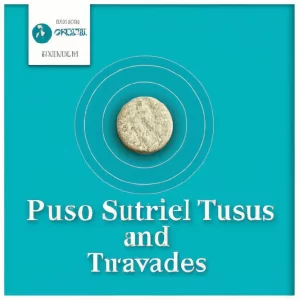In the intricate world of estate planning, one often overlooked but essential consideration is the taxation of payable on death bank accounts. As seasoned practitioners at Morgan Legal Group, based in the bustling metropolis of New York City, we are well-versed in navigating the complexities of probate, elder law, Wills, and trusts. Join us as we dissect the nuances of taxes levied on these accounts, shedding light on the potential implications for your estate plan.
Understanding the Tax Implications of Payable on Death Bank Accounts
When it comes to payable on death (POD) bank accounts, it is crucial to understand the tax implications that may arise. While POD accounts offer a convenient way to transfer funds upon the account holder’s passing, taxes may still apply to these accounts. Here are some key points to consider:
1. **Inheritance Tax**: Depending on the state where the account holder resides, inheritance tax may be due on the funds in the POD account. It’s important to consult with a tax professional to determine if any tax liabilities exist.
2. **Estate Tax**: The funds in a POD account may be included in the account holder’s estate for estate tax purposes. This can impact the overall value of the estate and may result in higher tax obligations for the beneficiaries. Be sure to consider this when planning your estate.
Key Factors Influencing Taxation on POD Accounts
When it comes to taxation on POD (payable on death) accounts, there are several key factors that can influence how these accounts are taxed. Understanding these factors is essential for individuals who have POD accounts or are considering opening one.
Some of the include:
- State laws: Different states have varying tax laws when it comes to POD accounts. It is crucial to be aware of the specific tax implications in your state.
- Beneficiary status: The tax treatment of a POD account may depend on the relationship between the account holder and the beneficiary. Certain beneficiaries, such as spouses or minor children, may qualify for different tax treatment.
- Account size: The size of the POD account can also impact taxation. Larger accounts may be subject to different tax rates or exemptions.
Strategies for Minimizing Taxes on Payable on Death Bank Accounts
When it comes to minimizing taxes on payable on death bank accounts, there are several key strategies that can help individuals protect their assets and ensure their beneficiaries receive the maximum amount of their inheritance. One effective approach is to carefully consider the distribution of assets among beneficiaries to take advantage of lower tax rates. By spreading out the account’s value among multiple beneficiaries, individuals can potentially lower the overall tax burden on the account.
Another important strategy is to leverage the annual gift tax exclusion to transfer funds to beneficiaries during one’s lifetime. By gifting assets up to the annual exclusion amount, individuals can reduce the size of their taxable estate and minimize the tax liability on payable on death bank accounts. Additionally, establishing a trust as the beneficiary of the account can provide added flexibility and control over how assets are distributed, potentially resulting in additional tax savings for both the account holder and their beneficiaries.
Expert Recommendations for Efficient Tax Planning on POD Bank Accounts
When it comes to efficient tax planning on POD bank accounts, expert recommendations are crucial to ensuring that your assets are protected and your loved ones are taken care of. Proper tax planning can help minimize the tax liability on your payable on death bank account and maximize the inheritance received by your beneficiaries.
Some key recommendations from experts include:
- Consult with a tax professional: It is important to seek advice from a tax professional who can provide guidance on the tax implications of your POD bank account and help you develop a tax-efficient estate plan.
- Consider gifting strategies: Gifting assets from your POD bank account during your lifetime can help reduce the size of your taxable estate, ultimately lowering the tax burden on your beneficiaries.
Q&A
Q: What is a payable on death (POD) bank account?
A: A POD bank account is a type of account where the account holder designates a beneficiary to receive the funds in the account upon their death.
Q: Are there any taxes payable on a POD bank account?
A: Yes, depending on the amount of funds in the account and the applicable tax laws, the beneficiary may be required to pay taxes on the funds received from a POD bank account.
Q: What types of taxes are payable on a POD bank account?
A: The taxes payable on a POD bank account vary depending on factors such as the size of the account, the relationship between the deceased and the beneficiary, and the relevant tax laws. Common taxes include inheritance tax and income tax.
Q: Is there a way to minimize taxes on a POD bank account?
A: One way to potentially minimize taxes on a POD bank account is by consulting with a tax professional or financial advisor to explore options such as trusts or gifting strategies.
Q: Are there any exemptions or exclusions for taxes on POD bank accounts?
A: Some states may offer exemptions or exclusions for taxes on POD bank accounts for certain beneficiaries, such as spouses or immediate family members. It is important to research and understand the specific tax laws in your state.
Q: What happens if taxes are not paid on a POD bank account?
A: If taxes are not paid on a POD bank account, the beneficiary may face penalties or legal consequences. It is important to comply with tax laws and regulations to avoid any issues in the future.
In Retrospect
As you navigate the complexities of estate planning and financial management, it’s important to consider all aspects of your assets, including payable on death bank accounts. Understanding the tax implications of these accounts can help ensure a smooth transfer of funds to your beneficiaries after you pass. By staying informed and seeking guidance from financial professionals, you can make informed decisions that will ultimately benefit your loved ones. Remember, proper planning today can provide peace of mind for tomorrow.










